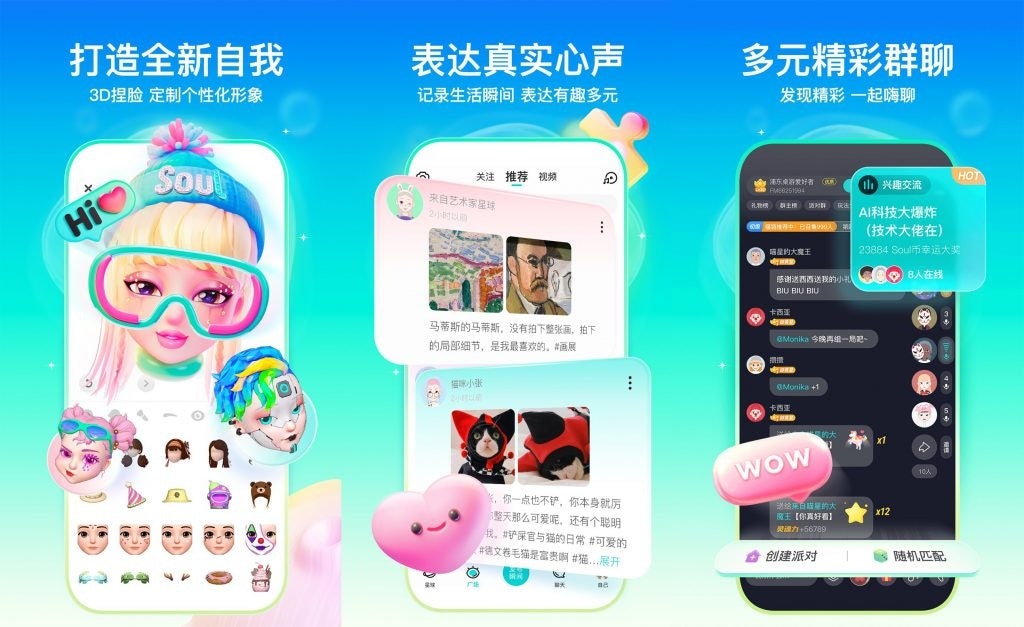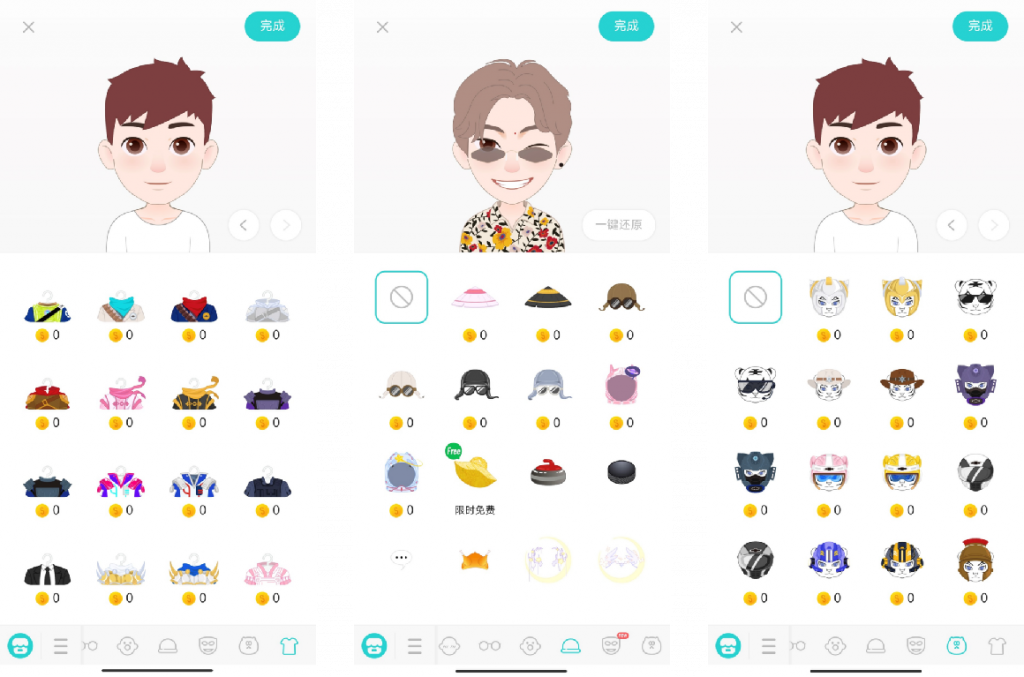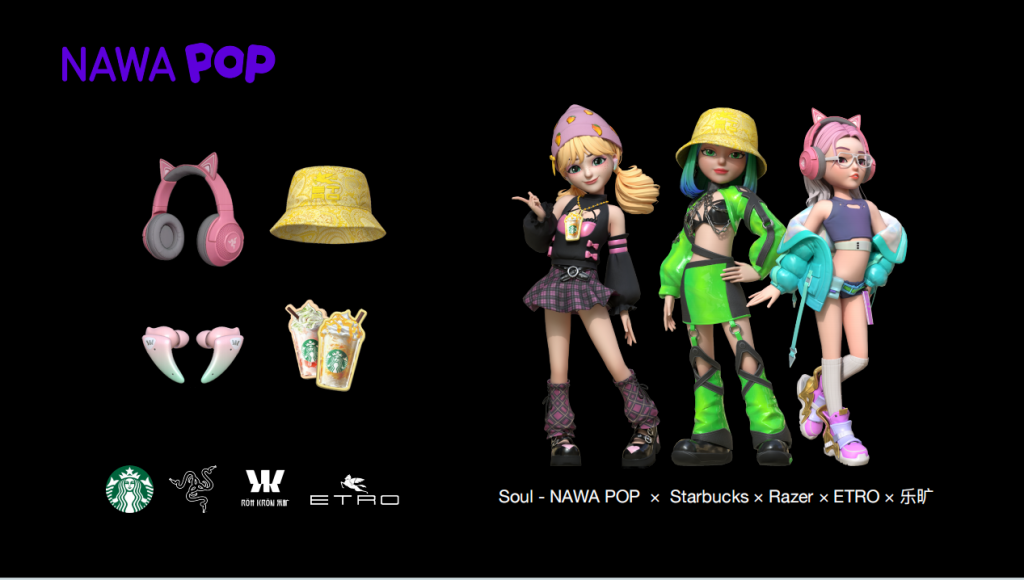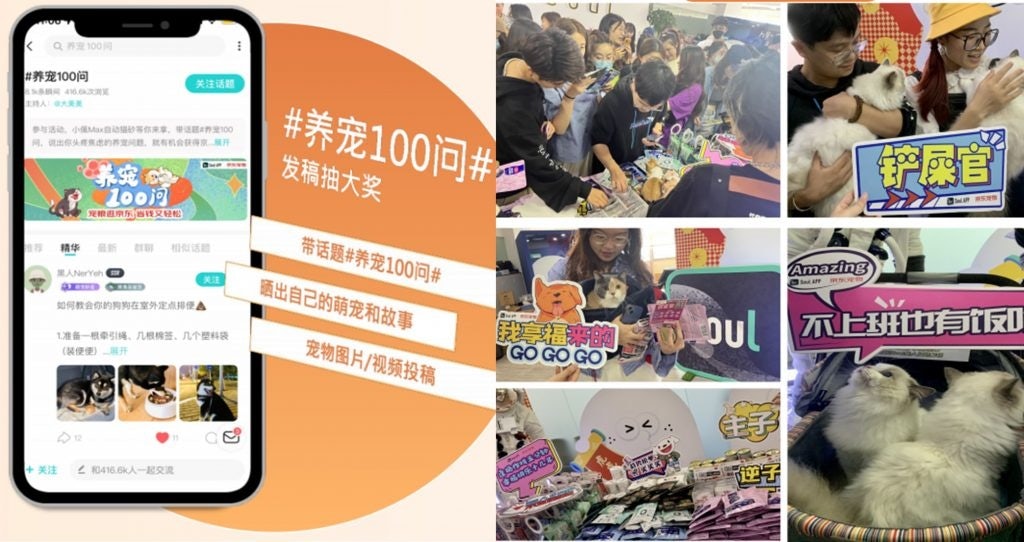China is in a “friendship recession,” where young people have an average of 2.5 close friends, according to a survey by Chinese social app Soul.
The term, which was one of the platform’s buzzwords in 2023, reflects the difficulties Gen Z users face in making and maintaining friendships. Other keywords this year, such as “buddy search,” “authentic personas,” and “anti-emo,” paint a clearer picture of their emotional turmoil and desire for belonging.
“We think it is due to the increased geographical mobility and the fast pace of life,” says Amanda Fan, head of marketing center at Soul. “But socializing is a must-have for everyone, so we can see that younger generations are now trying to explore new ways to connect.”
So, how are Chinese youth building relationships in these circumstances?
Enter Soul. Launched in 2016, the app connects people of like interests and hobbies, driven by the vision, “May there be no lonely people in the world.” As of December 2022, the Tencent-backed platform had nearly 30 million monthly active users, 80 percent of whom were Chinese Gen Z.
Building a Soul-cial metaverse for Chinese youth#
“China’s Gen Z is regarded as ‘a lonely generation’ as most of them are only children at home,” Fan tells Jing Daily. “When facing pressure from school and work, they may need more emotional companionship compared to the previous generations.”
Soul’s mission is to help Gen Z establish these companionships. And the way it achieves this, different from other social networks, is by requiring users to conceal their real identities through the use of avatars.
“Freed from the pressure that comes with appearance, age, job, and income, we found our users feel more at ease talking with others under avatars and focus more on looking for spiritual connections that are near and dear to their hearts,” Fan says about the importance of anonymity.
Users, or “Soulers,” first design avatars that reflect their cyber personalities. They can then find other users with mutual hobbies through Soul’s AI-powered recommendation system, Lingxi, and start a private chat or call with them. Soulers can also post content publicly on Soul Square, which is similar to WeChat Moments, and join party rooms, which are similar to Clubhouse rooms.

Thanks to these features, the platform has a strong engagement rate. As of December 2022, users spent an average of 46 minutes on the app, with 54 percent of daily active users engaged in private messaging and 31.5 percent of monthly active users engaged in creating organic content.
Brand awareness via avatars#
Given the amount of time spent on the platform, users are willing to splurge on their virtual identities and experiences, as seen by Soul’s revenue growth. In 2020, the company logged 498 million RMB (69.5 million) in revenue, and in 2022, it reported 1.66 billion RMB (231 million). Over 90 percent of revenue last year came from Soul’s value-added services, such as avatars and virtual gifts, game props, and memberships.
Soul is still in the early stages of monetization, but the timing for brands couldn’t be better, says Hazel Diliziya, a cultural and marketing consultant at Cherry Blossoms Intercultural Branding.
“Given the growing wave of nationalism in China and the evolving consumer mindset toward more rational choices, the Chinese youth no longer idolizes big luxury names but seek brands that engage with them on a personal level, demonstrating a profound understanding of Chinese culture and society. Aligning with leading social platforms like Soul, which is rapidly gaining prominence in China, presents a unique opportunity to make a significant impact,” she says.
Partnerships with Soul don’t look like ordinary banner ads. Rather, Soul helps brands create virtual scenarios to pique user interest and boost engagement.
For example, during the Chengdu Motor Show in 2022, Chevrolet hosted a booth with Soul where attendees could design avatars based on Chevrolet’s IP and print them out for their physical admission cards. Soul also invited all its online users to create Chevrolet-themed avatars, which brought the automobile brand nearly 63 million impressions.

Soul also has a feature called Nawa Pop that allows users to post their status, tag moods, and interact with others using full-body 3D avatars. Although it is still in an alpha state, brands have been experimenting with the service to offer users more diversified digital costumes, including Starbucks, MLB, Razer, and Taiwanese-American singer Van Ness Wu’s brand xVessel.

Cultivating communities through campaigns#
Because Gen Z consumers crave active involvement rather than passive consumption, brands can also consider working with Soul on interactive campaigns, adds Diliziya.
That’s precisely what JD.com did. With pets being one of the most popular topics among Gen Z, JD.com launched a social campaign with Soul called “100 questions to pet owners” (养宠100问) in 2022. Soul encouraged users to post their experiences of raising pets on Soul Square and invited three experts to answer questions from pet owners in an audio party. The platform also matched people through its recommendation system and held an event for pet lovers to meet in person.
The campaign attracted 1.89 million participants and reached 130 million people in total exposure, solidifying JD.com’s positioning as the go-to site for pet care essentials.

“By facilitating a sense of co-creation and shared experiences, brands can forge deeper connections with the youth on Soul, making them feel like valued participants rather than passive observers in the brand's narrative,” says Diliziya.
Staying true to Soul’s values#
According to Adam Knight, co-founder of cross-cultural consultancy Tong, having a “light touch” is ultimately the key to marketing on Soul.
“The thing that keeps Soul special is its community-driven authenticity,” he says. “Brands need to resist the temptation to rinse-and-repeat the same tried and tested top-down, loudspeaker approach to social media marketing that users are so desperate to flee by coming to Soul in the first place.”
“Brands need to resist the temptation to rinse-and-repeat the same tried and tested top-down, loudspeaker approach to social media marketing that users are so desperate to flee by coming to Soul in the first place.”
Rather, minimal and thoughtful engagements with specific communities and gatekeepers will help to build equity in a way that can be converted within the more traditional channel ecosystem, he continues.
With social media platforms becoming saturated with sponsored posts and brand accounts, Soul looks like uncharted territory in comparison. As Knight puts it, “In an ecosystem crowded with highly commercialized competitors, its simplicity has cut through the noise. It is simultaneously old-school, reminiscent of first-generation instant-messaging sites, while also progressive with its use of metaverse-style technologies.”
For brands, Soul presents a unique opportunity to dip their toes into China’s metaverse and cultivate friendships with an influential yet world-weary consumer base.


